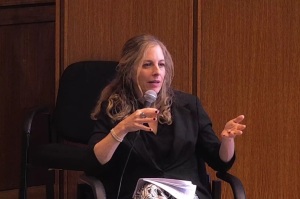Christian Groups Intensify Efforts Against U.N. Defamation Resolution
A U.N. resolution that seeks to criminalize words and actions perceived as attacks against religion – particularly Islam – will be up for vote again this year.
This time, however, the U.N. Defamation of Religions resolution is picking up more opposition than in previous years and might not pass as it has in the past.
"The resolution lost support in the U.N. General Assembly vote during the last couple of years and we think this year may be the tipping point," reported Christian persecution watchdog group Open Doors, which has launched a campaign to rally concerned individuals against the resolution.
"We need to encourage key countries to change their vote on this resolution, supporting the efforts of our State Department," it added.
Annually sponsored by the Organization of the Islamic Conference (OIC) since 1999, the anti-defamation resolution – which has been presented in various forms and under various titles – seeks to make the "defamation of religions" a human rights violation.
According to the resolution, the "defamation of religions and incitement to religious hatred
in general could lead to social disharmony and violations of human rights."
It also claims there is a "need to effectively combat defamation of all religions and incitement to religious hatred in general and against Islam and Muslims in particular."
However, while supporters of the resolution insist that there is a need for the "defamation of religion" to be considered a human rights violation, critics of the resolution, including more than 180 non-government organizations, have warned that such a move could be manipulated to justify anti-blasphemy laws and intimidate human rights activists and religious dissenters.
Instead of protecting adherents of religions, including those of religious minorities, the resolution protects religions themselves, critics say. Furthermore, the only religion mentioned in the text of the resolution is Islam.
"The resolution seeks to protect ideas instead of individuals undermining the true purpose of international human rights law," remarked Open Doors. "It also legitimizes national blasphemy laws used by countries such as Pakistan to silence Christians and other religious minorities, as well as Muslims who do not conform to the government's ideas."
Late last month, several Christian groups submitted a consultation paper to the U.N. Human Rights Council, urging it to protect religious expression, interpret "incitement" in a manner that protects religious minorities from "actual, imminent harm," and reject the call for vague "hate speech" codes that penalize speech that merely makes the listener uncomfortable.
The groups – which included Alliance Defense Fund, Christian Legal Fellowship, Jubilee Campaign, World Evangelical Alliance, and Advocates International – offered a handful of examples of censorship of "perfectly legitimate opinion under the guise of suppressing 'hate speech,'" including the case of two pastors in Australia who were found guilty of "hate speech" for criticizing Islam.
"In particular, we have seen 'hate speech' codes used to suppress actual and accurate information about Islam if it is presented in a critical context," they noted.
Adding to that, Open Doors USA Advocacy Director Lindsay Vessey said it is "dangerous and alarming that a U.N. resolution provides legitimacy to national blasphemy laws that are used to persecute Christians and other minority faith groups."
"The United Nations Defamation of Religions Resolution in effect amounts to the U.N. condoning state-sponsored persecution," she explained. "We as Christians need to speak out against it and do all in our power to stop its passage. Everyone should be free to believe."
With the U.N. General Assembly's Third Committee expected to vote on the resolution next month and the U.N. General Assembly in December, Open Doors and a number of Christian organizations are making stronger efforts to see it rejected.
Particularly, Open Doors, through its "Free to Believe" campaign, is rallying concerned Americans to press their representatives to reach out to countries that abstained from last year's GA vote on the resolution. Countries that abstained included Belize, Brazil, Cameroon, Colombia, Costa Rica, Ghana, Guatemala, and Zambia. Open Doors is also targeting countries that voted "yes" last year but are not member states of the OIC, which boasts itself as the second largest inter-governmental organization in the world after the United Nations and claims to represent "the collective voice of the Muslim world."
Presently, OIC's member states and allies have a majority in the 47-nation U.N. Human Rights Council, but if nations such as the Dominican Republic and Thailand change their "yes" votes to "no" this year and are joined by some of those who abstained in 2009, a defeat of the resolution is possible.
"It is important to encourage key countries to change their vote on the resolution," Open Doors noted.
"These countries are not easily influenced by American citizens. But, they are more receptive to pressure from our legislators. That's why Open Doors is urging persons to send a message to their legislators, asking him or her to ask key countries to change their vote on the Defamation of Religions Resolution," the watchdog group added.
According to Open Doors, an estimated 100 million Christians worldwide suffer interrogation, arrest and even death for their faith in Christ, with millions more facing discrimination and alienation.
Christians in Muslim-dominated countries, especially, are facing increased persecution. Over the last few weeks churches in Indonesia have been attacked and forced to close and a mob of Pakistani Muslim extremists shot and beat dozens of Christians, including one cleared earlier of "blasphemy" charges.
As part of its campaign, Open Doors has launched a website on which it has provided a sample letter for people to send that includes the necessary information for elected officials to lobby the target U.N. country missions.
It also points to remarks by U.S. Secretary of State Hillary Clinton and the U.S. Commission on International Religious Freedom in opposition to the resolution. A link to the resolution's full text is also included.
On the Web:



























